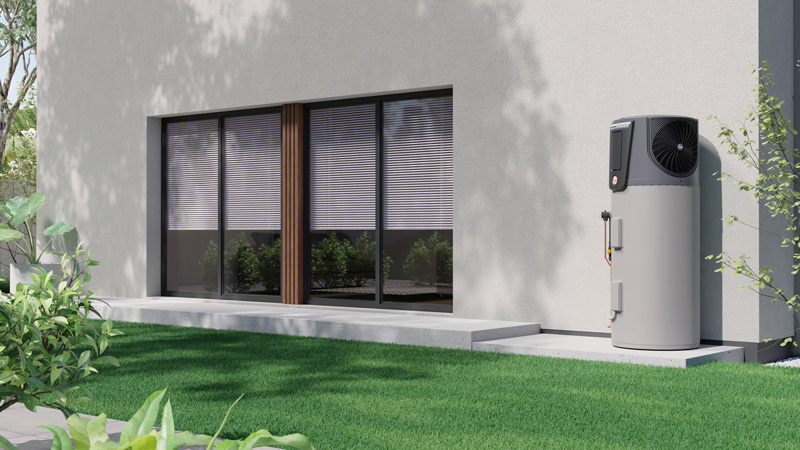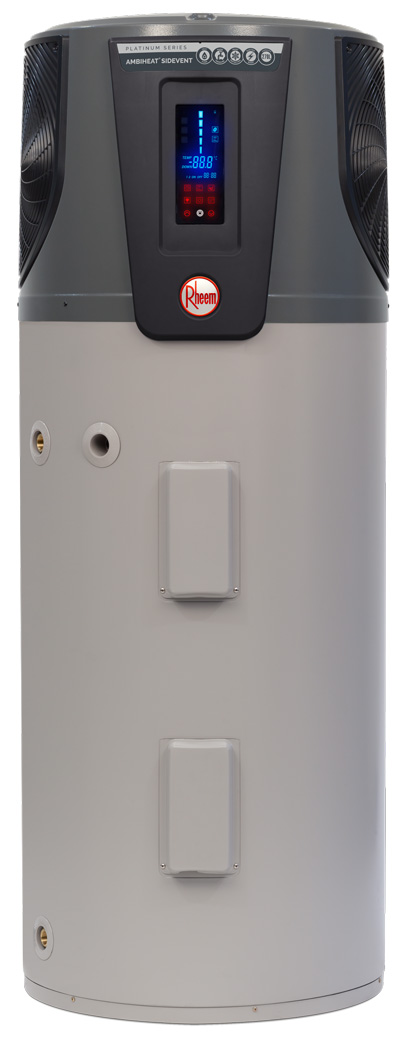The Future of Hot Water
9 September 2025
The future of hot water is no arbitrary topic. Water heating is the second largest energy consumer in New Zealand homes (behind space heaters) and typically makes up around a third of household energy bills for Kiwis.[1] More broadly, 10% of all non-transport energy in New Zealand goes towards heating water in industrial and commercial business.[2] Developing smart, sustainable and reliable solutions for water heating will not only save Kiwi homes and businesses on their monthly bills, but also make an important contribution to lowering our national energy consumption and carbon footprint.
The Energy Trilemma
When we talk about the future of hot water, we have to begin by talking about the Global Energy Trilemma. For every world government, there are three key areas that need to be balanced when considering energy solutions: energy security, energy equity (accessible and affordable energy), and environmental impact & sustainability.[3] Unfortunately, most energy sources don’t tick all three boxes. Fossil fuels, for example, are traditionally more affordable and provide energy security (at least in the short term) but are unsustainable and generally have a high impact on the environment.
In New Zealand, we are fortunate to have access to a mostly renewable source of electricity – around 80% of our electricity is produced from renewable sources like hydropower, geothermal power, and wind.[4] This places us in a great position to meet all three aspects of the trilemma – for example, modern appliances powered by electricity will generally be sustainable. However, energy prices continue to climb, and in recent years we’ve also seen energy security becoming an issue with the grid being put under stress during peak periods. This means we still need solutions that help NZ homeowners and businesses consistently tick all three boxes of the energy trilemma.
The Hot Water Opportunity
As alluded to above, hot water – and particularly heat pump water heaters – presents one very tangible way to meet all three aspects of the trilemma. And because most water heaters are tucked away in cupboards or basements, the opportunity is often overlooked. According to an EECA report, over a third of people they surveyed had never heard of hot water heat pumps, and another third knew nothing about them except the name.[5] This has led to only 3% of New Zealand households installing heat pump water heaters.[6] While these stats are a little concerning, they also represent a massive opportunity for not only individual home and business owners, but for New Zealand as a whole.
Heat Pump Water Heating
So why do heat pump water heaters present such a big opportunity? First, they tick the sustainability box. By using ambient air to heat water instead of drawing heavily from the grid, they dramatically reduce carbon emissions (especially when paired with New Zealand’s mostly renewable electricity supply).
Second, they lower energy costs. Rheem® heat pump water heaters are significantly more efficient than conventional electric or gas water heaters, using up to 70% less electricity to produce the same amount of hot water. This makes them an accessible option for homeowners looking to reduce their power bills.
Third, they support energy security. Because they require much less energy to run, they ease the burden on the national grid – particularly during high-demand periods. With a Coefficient of Performance (COP) typically over 4, Rheem® heat pump water heaters can deliver more than four units of heat energy for every unit of electricity consumed. That’s a big win when it comes to reducing load on the grid and taking pressure off our national energy systems.
The Future of Hot Water
Considering all of the above, when we talk about the future of hot water, we should be talking about heat pump water heaters. New Zealand’s clean electricity puts us in a strong starting position – even if your customers are currently using a traditional electric cylinder, they’re still tapping into a relatively sustainable energy source. But when it comes time to replace a unit or if you’re working on a new home, think about recommending a Rheem® heat pump water heater. It’s a proven technology that’s ticks all three boxes of the global energy trilemma – and the sooner we make the switch, the faster we move towards a lower-carbon, more cost-effective energy future for New Zealand.
Get in touch today to find out more.
[1] https://www.genless.govt.nz/for-everyone/at-home/improve-energy-efficiency/heat-water-efficiently/
[2] https://www.eeca.govt.nz/insights/eeca-insights/hot-water-heat-pumps-in-commercial-buildings/
[3] https://trilemma.worldenergy.org/
[4] https://www.eeca.govt.nz/insights/energy-in-new-zealand/the-future-of-energy-in-new-zealand
[5] https://www.eeca.govt.nz/insights/energy-in-new-zealand/the-future-of-energy-in-new-zealand
[6] https://www.eeca.govt.nz/about/news-and-corporate/news/electrifying-nzs-ageing-household-appliances-represents-an-opportunity-for-homeowners-and-the-energy-system-says-eeca
First published in NZ Plumber in the Aug/Sep 2025 issue.

The AMBIHEAT HDc-270 Heat Pump is the new generation 270L capacity heat pump

The AMBIHEAT HDc-270 Heat Pump

